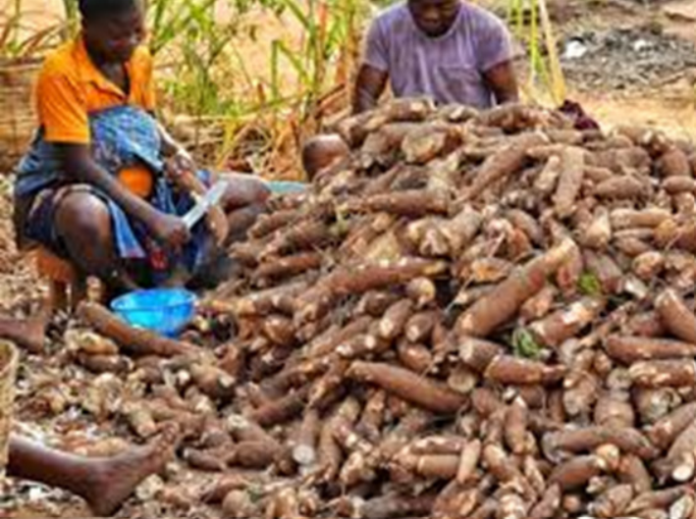FROM available records, cassava is said to have originated in tropical America and was first introduced into Africa in the Congo Basin by the Portuguese around 1558. It has become widely popular in Nigeria, where it now supports the livelihood of over 300 million Africans.
Cassava is rich in carbohydrates, calcium, vitamins B and C, and essential minerals.
Nigeria’s cassava production is the largest in the world, surpassing Brazil’s by a third and nearly doubling the production of Indonesia and Thailand.
It is both ironic and troubling that Nigeria, despite being the leading producer of cassava, struggles to produce enough to feed its population. As the cassava industry in Nigeria develops, the uses of cassava have increased and diversified.
Cassava starch is now used as an industrial raw material in food, medicine, cosmetics, beverages, animal feed, and chemicals. Additionally, cassava has several health benefits, including the prevention of cardiovascular diseases, improved energy and mood, better diabetes management, enhanced skin and nail health, improved digestion, a stronger immune system, weight loss support, and cancer prevention.
Cassava is also a versatile crop with high-yielding potential. It is used in various industrial applications, such as chips, flour, starch, and leaves, all of which are in high export demand. In response to this potential, the Delta State government has initiated efforts to boost cassava production in the state.
Recently, the Commissioner for Agriculture and Natural Resources, Val Arenyenka, addressed the Nigeria Cassava Growers Association, Delta State branch, and USAID Feed the Future Nigeria Agricultural Extension and Advisory Services during their visit to Asaba.
The Commissioner emphasized the government’s commitment to collaborating with partners and genuine farmers to bring modern agricultural practices to Delta State through training, provision of farm inputs, and equipment.
He remarked, “Knowledge in modern agricultural methods is essential for the development and flourishing of agriculture.”
In his address to the Nigeria Cassava Growers Association, Arenyenka highlighted the importance of cassava due to its role in producing garri, a staple food not only in Delta State but across Nigeria and Africa.
He noted, however, that factors such as insecurity and climate change have negatively impacted cassava production, making it difficult for farmers to access their farms.
The Commissioner expressed hope that boosting cassava production would bring significant benefits to citizens, who rely heavily on cassava, known locally by various names such as “Santana,” “loi-loi,” “packet shirt,” “akpu,” and “6 to 6.”
Despite the rapid growth in cassava production, challenges remain, including pests and diseases, shortage of planting materials, inconsistent policy measures, poor market access, and limited processing options.
A local farmer, Chief Jerome Okafor, urged the government to address these issues, emphasizing that cassava is a dietary staple for many Nigerians, with seven out of ten consuming it daily.
Okafor also highlighted the potential for African countries to reduce reliance on imported wheat flour by investing in cassava. Cassava’s resilience in harsh conditions and its potential to produce a range of products, including flour and animal feed, underscores its importance.
Agriculturist, Mr. Kunle Idris noted that cassava’s starchy roots are a major energy source for 500 million people and the highest producer of carbohydrates among staple crops. He stressed that government support for cassava production would be highly beneficial.
A seller of “akpu” (cassava fufu) at the Midwifery Market in Okpanam, Mrs. Theresa Chiemeke, reported booming sales and a favorable market. She observed that, despite economic difficulties, cassava remains a cheaper and more accessible food option compared to others. However, she lamented that the price of “akpu” has increased, with small portions now costing 200 naira per wrap, which she finds insufficient for feeding an individual.
Chiemeke expressed excitement about the government’s commitment to boosting cassava production, believing it would lower prices and make the product more affordable for the masses.
She commended the Delta State government for its focus on cassava and urged continued support for this crucial initiative.


